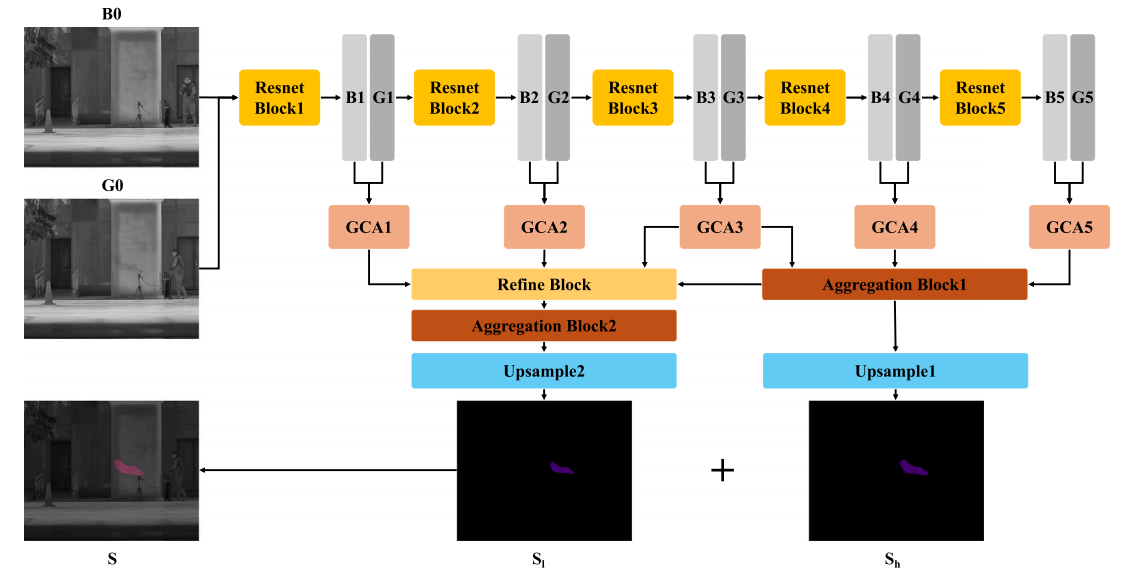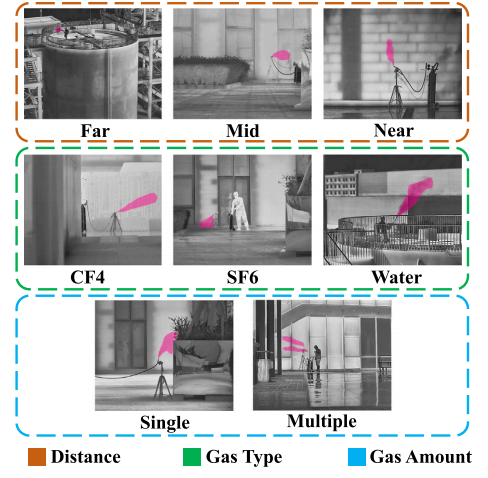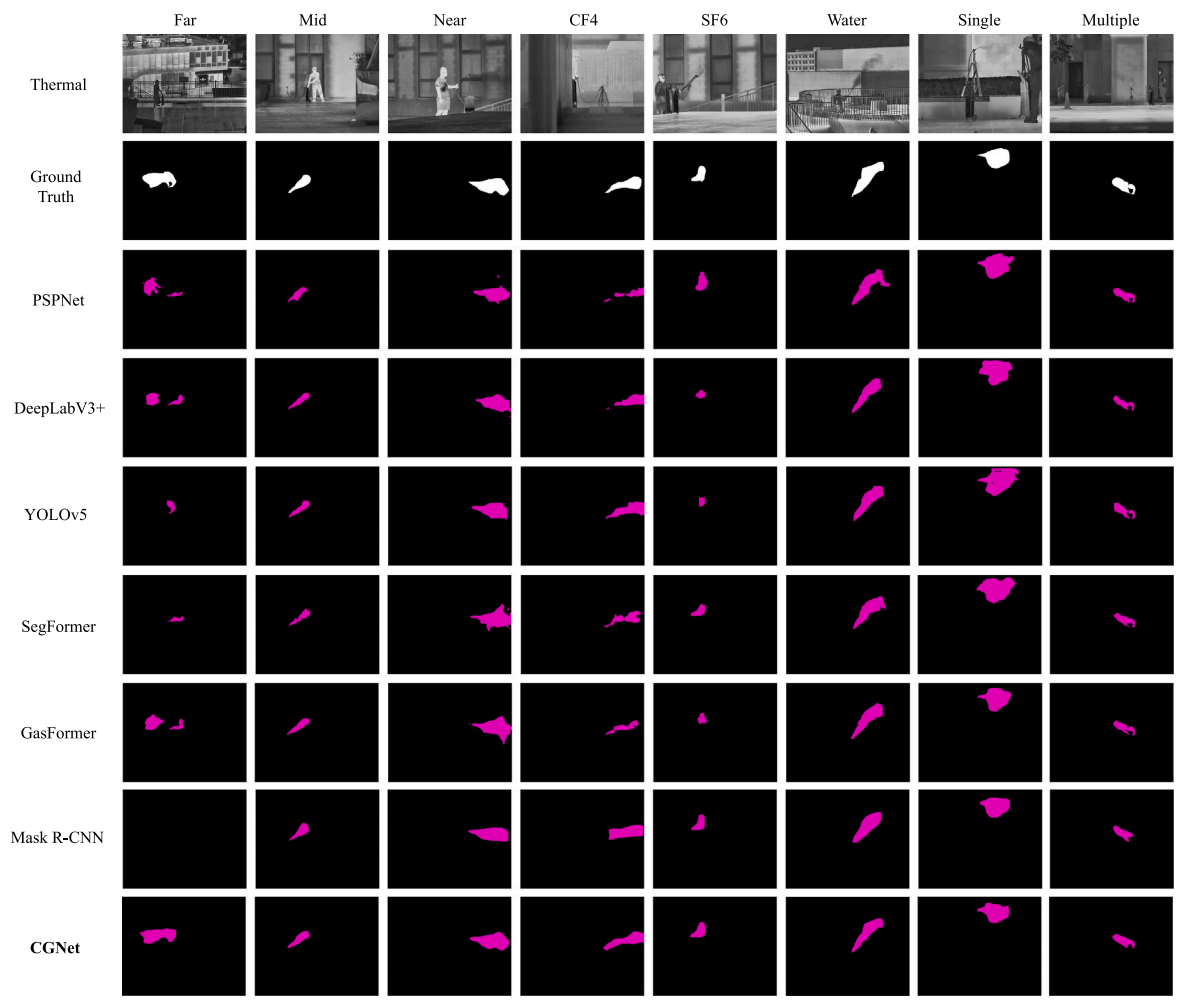It processes a static background 𝐵0 and a gas release image 𝐺0 using ResNet for feature extraction. The gas Contrast Attention (GCA) mechanism compares feature 𝐵𝑖 and 𝐺𝑖 at each layer. Aggression Blocks integrate multi-level features, producing low-dimensional 𝑆𝑙 and high-dimensional 𝑆ℎ segmentations, which are refined and combined into the final segmentation 𝑆.
Overview of the proposed CGD dataset designed for gas imaging and segmentation tasks. It comprises 9 distinct groups, categorized based on (1) the distance between the imaging system and the gas source, (2) the type of gases, and (3) the number of gas types present in the scene.
The visualization of prediction comparisons from different methods, according to the rows from top to bottom in order: Thermal; Ground Truth; PSPNet; DeepLabV3+; YOLOv5; SegFormer; GasFormer; CGNet.
If you are interested in our work, please star ⭐ our project.
- Prepare our Gas-DB dataset: the dataset will be available after sending an email explaining your purpose to tianshuoy@outlook.com, thanks!
conda create -n CGNet python==3.10
conda activate CGNet
pip install -r requirements.txt
python train.py
python test.py
python inference.py
For any question, feel free to email tianshuoy@outlook.com.
@article{wang2025contrast,
title={Contrast gas detection: Improving infrared gas semantic segmentation with static background},
author={Wang, Jue and Fan, Jianzhi and Yuan, Tianshuo and Luo, Dong and Jiao, Guohua and Chen, Wei},
journal={Engineering Applications of Artificial Intelligence},
volume={159},
pages={111604},
year={2025},
publisher={Elsevier}
}



